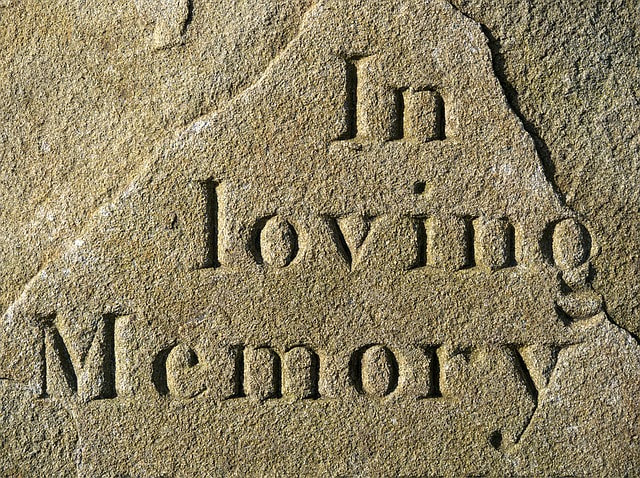|
By: Sarah Becker
Since the beginning of my junior year, I have led GOAL Community Health, a volunteer program for undergraduate students at Hillsdale College. Promoting student involvement with organizations such as the Early Pregnancy Loss Association has taught me three valuable lessons: 1. Serve as a community Whether I was assembling miscarriage support kits, writing letters to families who have experienced a miscarriage, or connecting students to marketing and social media projects with the EPLA, working for others has been most joyful and transformative when I have been able to work with others. The opportunity to collaborate with both students and community members has not only helped me see that my own perspectives are more well-rounded and my skills are most effective when they are combined with those of others, but it has also reminded me that I am interdependent and exist in a community. Not every woman or family experiences miscarriage, but each of us face our own individual sufferings and struggles. Learning that each of us relies upon the support, strength, and encouragement of others, even if in different ways, can be a difficult and humbling lesson. Yet it’s an important one, and I am grateful for the ways in which serving the EPLA within a community keeps that truth in the forefront of my mind. 2. Understand the needs of others Working with the Early Pregnancy Loss Association over the past two years has taught me that caring for others is never an abstract concept or theoretical idea. Instead, it is a practical, tangible activity that has the potential to transform the lives of real people. Serving those around me requires passion, ambition, and a desire to help, but it also demands that I be familiar with the genuine needs, struggles, and sufferings of those I aim to serve. The EPLA’s deep willingness to listen to the women and families it serves has always impressed me, and I am thankful for its witness to the fact that I can only serve others well if I first choose to embrace stories, needs, and sufferings that are sometimes complex to understand or difficult to hear. 3. Keep the person at the center Any successful organization like the EPLA requires efficiency and organization, yet even the most well-designed or well-managed administrative systems are never a substitute for the personal relationships they are meant to support. The ultimate goal of any non-profit should never be merely to solve an impersonal project or problem, but instead to serve people. Through my work with the EPLA, I am grateful to have learned that upholding values such as bearing burdens, loving people, and grieving together can require providing miscarriage kits or financial support, but ultimately must prioritize personal relationships, too. This spring, I am stepping away from my role with GOAL Community Health as I graduate in May and begin medical school in the fall, yet I am eager to take these three lessons with me. Working with the EPLA has played a role in motivating me to pursue medicine, but has also shaped my vision of what kind of physician I hope to become. Regardless of where my career takes me, I aspire to remember that improving the health of those around me is a project best pursued with others, with a recognition of the genuine needs of my community, and with attention to the individual people I aim to serve.
0 Comments
By: Nick Carrington EPLA Editor Miscarriage is heartbreaking. Parents lose a child and will never see him or her smile, climb trees, ride rollercoasters, or go to prom. As a society, we struggle to affirm the pain this causes, even though studies show that parents grieve miscarriages as long and as intensely as other deaths. Our failure to recognize this grief has led to numerous challenges, including in the workplace. Additionally women and families are left to navigate this grief while experiencing the physical process of a miscarriage. A woman might choose to deliver the baby naturally, which is a process like any birth that has no clear time table and might take weeks to begin. Without appropriate leave a woman could find herself delivering the decease child in the work place, even in the case of an early miscarriage. If she does not want to wait for a natural miscarriage she might choose a D&C procedure, which like any surgical procedure requires time and healing for recovery. Our failure to recognize the grief and physical process of a miscarriage has led to numerous challenges, including in the workplace. When parents lose a child in the womb, they often get little or no time off work to recover. If they do miss work days, loss parents frequently do so without pay under the “Family and Medical Leave Act” (FMLA). Bereavement legislation is getting a new look in Europe, but miscarriages are typically ignored. Families may not have the luxury to take leave without pay if they have other mouths to feed. The prolonged grief of miscarriage can affect their job performance, especially in the days immediately following the loss of their child. Our workplaces need to recognize this and respond accordingly. Here are a few ideas to help employers navigate a difficult situation. 1. Discuss with your Employee How Much Time They Need Off Loss parents likely need time to deal with the physical and emotional turmoil that miscarriage brings. The amount of time away will depend on the person. Obviously, there should be limits to how many days an employee can take; organizations can’t be shorthanded forever. But employers should be generous with the understanding that a family has just lost a son or daughter. Those wounds do not heal with Band-Aids. 2. Consider Easing Loss Parents Back into Work If possible, create a temporary work structure that allows an employee to contribute but takes away some stress. This may mean allowing the bereaved to work from home a few days a week or giving them important but low stakes assignments. Loss parents will want to contribute, but they may not be ready to immediately begin making big decisions right away. 3. Show the Organization Cares When parents lose a child, they frequently want others to remember their children and recognize the magnitude of that loss. Employers and coworkers should consider sending flowers, a card, or other small gifts to show they care about the bereaved. Loss parents need support from multiple places, and a little thoughtfulness from an employer can help by making them feel like more family than indentured servants. Compassion That’s Not Compelled While no legislation exists that forces organizations to give paid leave to loss parents, we urge employers to consider the pain of miscarriage and respond with compassion. Parents mourning a miscarriage will usually grieve as they do other deaths in the family. They could use a moment to breathe before diving headfirst into the waters of everyday life. A little compassion can make a big difference. Nick Carrington is an Editor for the EPLA and Assistant Professor of Professional Writing at Cedarville University.
By: Emily Carrington EPLA President and Founder Whether you or a loved one is suffering early pregnancy loss, there is support out there. Emotional and spiritual support is incredibly important, but so is physical support of the difficult days and weeks following a miscarriage. Unfortunately, many women and families are not prepared for the physical experience of having to deliver a miscarried baby. Here are some organizations that provide nationwide help with the physical needs of a miscarriage. What to Expect During a Miscarriage: Comfort Kits: Medical Kits for Home Miscarriage Burial Aid Materials Check with your local hospital, OBGYN, or midwife to see if miscarriage care kits are available. The items in these kits are often easily accessible. Please note, EPLA wants to connect women and resources. Inclusion in this list does not imply an endorsement of or relationship with the organization. We simply hope you might find them helpful. If you are experiencing a miscarriage at home, we recommend that you maintain communication with your doctor or midwife. In Hillsdale, Michigan where EPLA is located, we offer Miscarriage Care Kits in two sizes that provide items to meet both physical and emotional needs. Kits are available at the Hillsdale Hospital Birthing Center, Hillsdale Hospital Emergency Department, Alpha Omega, and the Branch-Hillsdale-St. Joseph Community Health Agency. We encourage other miscarriage support groups around the country to replicate our kits in their own communities. Emily Carrington is a freelance writer, wife, mother, and founder of the EPLA.
By: Sonja Bindus I was pregnant with my first child and was very excited for her arrival. I was a teacher at that time, working with toddler/preschool-aged children. There was much relief when I had passed through the first trimester with no complications or issues. It was the end of my second trimester when I became very ill with pneumonia. My cough was so severe that my doctor considered hospitalizing me because he was concerned my oxygen levels were low. However, I seemed to progress in my recovery with antibiotics, so my doctor was no longer worried about my health or my baby. My husband and I drew a breath of relief and continued on with anticipation of the arrival of our baby. A few weeks passed and a friend of ours, who was an ultrasound tech, offered to do an ultrasound so we could have a peek at our baby. Of course we jumped at the chance. At that appointment we would hear some devastating news. As soon as my friend started the ultrasound, I noticed her face and knew immediately something was terribly wrong. I asked her if my baby had died, and she sadly confirmed. Because I was 20 weeks along, the process of delivering my baby was by far the most difficult thing I had ever faced. Fortunately, I had a wonderfully supportive doctor and nursing staff who tended to me through 12 hours of induced labor. After a few minutes of holding my baby, I had to say goodbye to the most beautiful child I had carried and loved. The loss left a hole in my soul that I will never be able to fully replace. As a part of my aftercare, my doctor ordered a series of bloodwork. The bloodwork revealed I had CMV, or Cytomegalovirus. CMV is a virus that is prevalent with children under the age of five. Because I had daily exposure to children of that age, I knew I had contracted it from one of my students. This stirred up a new set of emotions within me. My first instinct was to get pregnant again as soon as possible. However, I learned that until my body started producing antibodies against CMV, it was not safe for me to become pregnant. That took about six months.After my body began producing antibodies, my focus became self-care, health, and conceiving. God definitely knew my soul needed healing and blessed us with a healthy pregnancy and delivery the following year. The loss of my child changed me dramatically. The sanctity of life became much clearer after loss, and I treasured it even more than before. For a while I became obsessed with germs and keeping my hands clean, especially at work. While I’m still mindful of clean hands, I now focus more on general wellness strategies for the school I am now the director of. It is my goal to educate parents on how they can best care for their sick child and also on the reasons sick children should not attend school. There are many people who have compromised immune systems, and they are at greater risk for developing severe symptoms of viral and bacterial infections. My advice to parents who have lost a child would be to find a way to grieve together and with others closest to you. The tragedy of loss can only be understood by those who have experienced great loss of their own. Also, faith was a big component in my healing, and it carried me through my darkest days. I did not share my story with many people, but most people knew my story because I was halfway through my pregnancy when it happened. Not many approached me or talked with me about it, other than saying, “I’m so sorry.” I did reach out to people who had miscarried and mentioned to them I had experienced loss like theirs. Sharing the whole story was very painful and mostly made me uncomfortable. I thought at one time that I should seek out a support group, but there wasn’t anything close to our hometown at that time - 23 years ago. I proceeded to have three children and kept my focus on their lives and to be present with them each day. My children know about their sister that died, and from time to time her name, Emaline, comes up. She is never forgotten and I think of her often and look forward to reuniting with her one day in heaven. Sonja Bindus resides in Hillsdale, MI, and is a wife and mother to three children. Sonja, a Hillsdale College alumna, is the head of Early Childhood Education and the director of the Mary Randall Preschool at Hillsdale College.
By: Stephanie Gordon EPLA Editor In the core value series, the editors of Hope Blooms seek to show the heart of the EPLA by describing our core values. We encourage you to remember the children we’ve lost and stand with families suffering from miscarriage. Grieving Together When I experienced my miscarriage nearly eight years ago, I felt like I was the only one who had gone through this tragic event. None of my friends had experienced miscarriage, nor had I ever talked about miscarriage because I didn’t have a reason to. I wasn’t sure where to turn, even though I was surrounded by love. Those closest to me showed support, but I still felt alone. One of our core values is grieving together. Pregnancy loss carries a stereotype of being a personal, quiet event. Even though everyone grieves differently, many women struggle to process their emotions during pregnancy loss. Some find comfort in grieving privately, while others prefer to grieve publicly. Either way, women and families deserve a safe environment to process their grief. Here at the EPLA, we acknowledge the unfortunate frequency of early pregnancy loss and recognize it as a death. We are here to provide a space to grieve. Years after my miscarriage, the EPLA was formed. I wanted to get involved right away, because I remember those many months of grieving alone, even though my husband, family, and friends were there for me. The EPLA was an outlet that allowed me to connect with other mothers who had experienced what I had. We are here to offer emotional and physical support with educational care kits, miscarriage care kits, care provider networking, and community education. We are here to share your stories on our blog and social media pages to help bring awareness to pregnancy loss and to honor your babies who were lost too soon. Every year we hold a tulip fundraiser to help remember the babies who were lost, one way we grieve alongside you. We are here to help bear the burden of grief because you are not alone. Later this week, I will share a tragic loss story from a local mother who experienced loss more than 20 years ago. This was a time when pregnancy loss wasn’t really discussed. Her story is powerful, and goes to show that even though it may not feel like it, the stereotype of miscarriage is indeed evolving. Families should no longer feel like they need to grieve alone. Stephanie Gordon is a paleo food enthusiast, wife, full-time SAHM, marketing professional, and blogger.
|
Archives
December 2023
Categories
All
|





 RSS Feed
RSS Feed